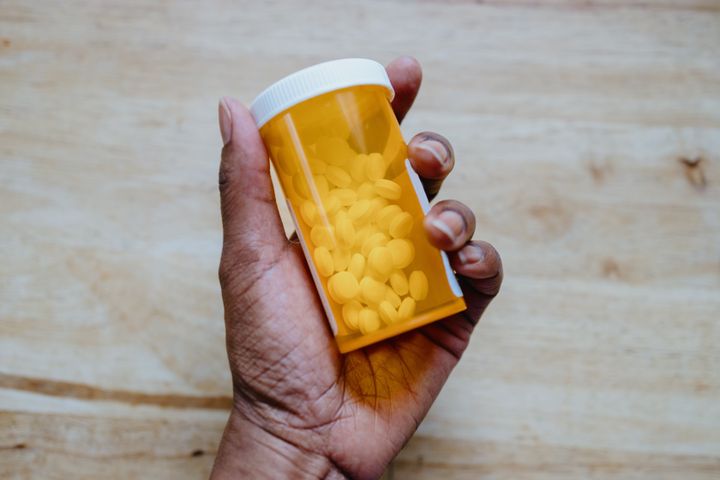It seems like every time you turn on the news or open your phone, new information about COVID-19 pops up.
Most of this information is pertinent to the latest variant EG.5, also called “Eris,” but recently, other more promising news is making its rounds: Metformin, a drug generally used to treat type 2 diabetes, may be used to prevent long COVID.
According to Dr. Jacob Teitelbaum, a board-certified internist specializing in the treatment of chronic fatigue syndrome and fibromyalgia, approximately 10% of people who get COVID (even a mild case) come down with long COVID. The condition is exactly what it sounds like — symptoms of the infection linger for days, weeks, months and even years.
These complications may include chronic pain, brain fog, shortness of breath, chest pain and intense fatigue. Other common symptoms include nausea, abdominal pain, loss of appetite, heartburn and constipation.
Now, doctors are hoping metformin might be a solution after a recent study suggests that the popular prescription may reduce a person’s risk for developing the condition following a COVID infection. Here’s what experts want you to know.
What did the study find?
The research, published in the The Lancet in June, showed that taking metformin for two weeks during an acute COVID infection decreased the risk of getting long COVID by 63% if started in the first four days of the infection. The risk of getting long COVID was reduced by 42% if the infected person started taking metformin after four days.
“Metformin has been identified as a COVID-19 therapeutic agent due to its in vitro antiviral activity, its antithrombotic and anti-inflammatory activity, and its work against protein production,” said Jennifer Bourgeois, a health and pharmacy expert at SingleCare who was not affiliated with the study. In other words: Metformin may have properties that can reduce clotting, protein production and inflammation – issues that can be part of long COVID.
The study examined 1,431 participants between the age of 30 and 85 who were considered overweight or obese. All volunteers were either given metformin or a metformin placebo. One subset was also given ivermectin (an antiparasitic drug that people have attempted to use to treat COVID, despite concerns from experts) or an ivermectin placebo, fluvoxamine (a mental health medication that showed some early promise for preventing COVID hospitalizations in high-risk patients) or a fluvoxamine placebo.
The participants then reported on their symptoms for up to 10 months following their COVID-19 diagnosis; any long COVID diagnoses were also confirmed by the study volunteer’s medical provider. The results showed that metformin use saw the biggest reduction in long COVID risk.
The researchers did note that “there is selection bias in that individuals who choose to enroll in clinical trials and complete 10 months of follow-up surveys might not represent the general population affected by COVID-19 and long COVID.”
Researchers excluded low-risk adults from the study.
“Further research is needed to determine if the COVID vaccine contributes to the reduction in long COVID and if metformin is also effective in adults with previous infection and with normal body mass index,” said Dr. Phillip Kadaj, a physician and medical expert on JustAnswer.com who was not affiliated with the research.
Here’s what this means for the future of long COVID treatment.
Experts say the results are promising. If it turns out that this holds up in the real world, it could be a low-cost way to tackle long COVID. As a diabetes treatment, metformin has also been shown to be safe for use in children, and during pregnancy and lactation. Researchers hope the same holds true for COVID treatment.
“I would caution readers to let the data develop a little bit further regarding metformin,” Kadaj said. “I wouldn’t run out and start taking medication to prevent long COVID based on one study. Let the data develop and accumulate and make decisions based on multiple studies.”
While this study with metformin has shown good results for some individuals, other methods ― like using paxlovid after an infection ― are also currently being studied as long COVID prevention, too. Because the condition is so new, scientists still need to do lots of research in order to definitively determine the best courses of treatment. However, experts agree these results could be a game changer in the future after more studies are done.
The best way to prevent long COVID now is to do all you can to not get a COVID infection in the first place. Experts still stress the same precautions we’ve known for years are still applicable now, including:
Washing your hands.
This is something we’ve all been doing our entire lives, but it’s important more now than ever. The Centers for Disease Control and Prevention recommends scrubbing your hands with soap for at least 20 seconds for optimal results — this is the equivalent to two “happy birthday” songs.
Wearing a mask.
You can wear a mask when you’re in a public setting to help prevent the spread of germs, especially if you’re in crowded, indoor spaces. Keep the mask over your nose, mouth and chin. The World Health Organization advises against wearing masks with valves.
Getting tested and staying home if you don’t feel well.
If you’re not feeling well, it’s important to stay away from people to reduce any spread of the virus. Taking tests at the first signs of symptoms is also important so you can start any potential treatment you may need, depending on your risk level.
This article has been updated to clarify details of the study results and to remove an incorrect statement that the researchers did not control for vaccine status.



